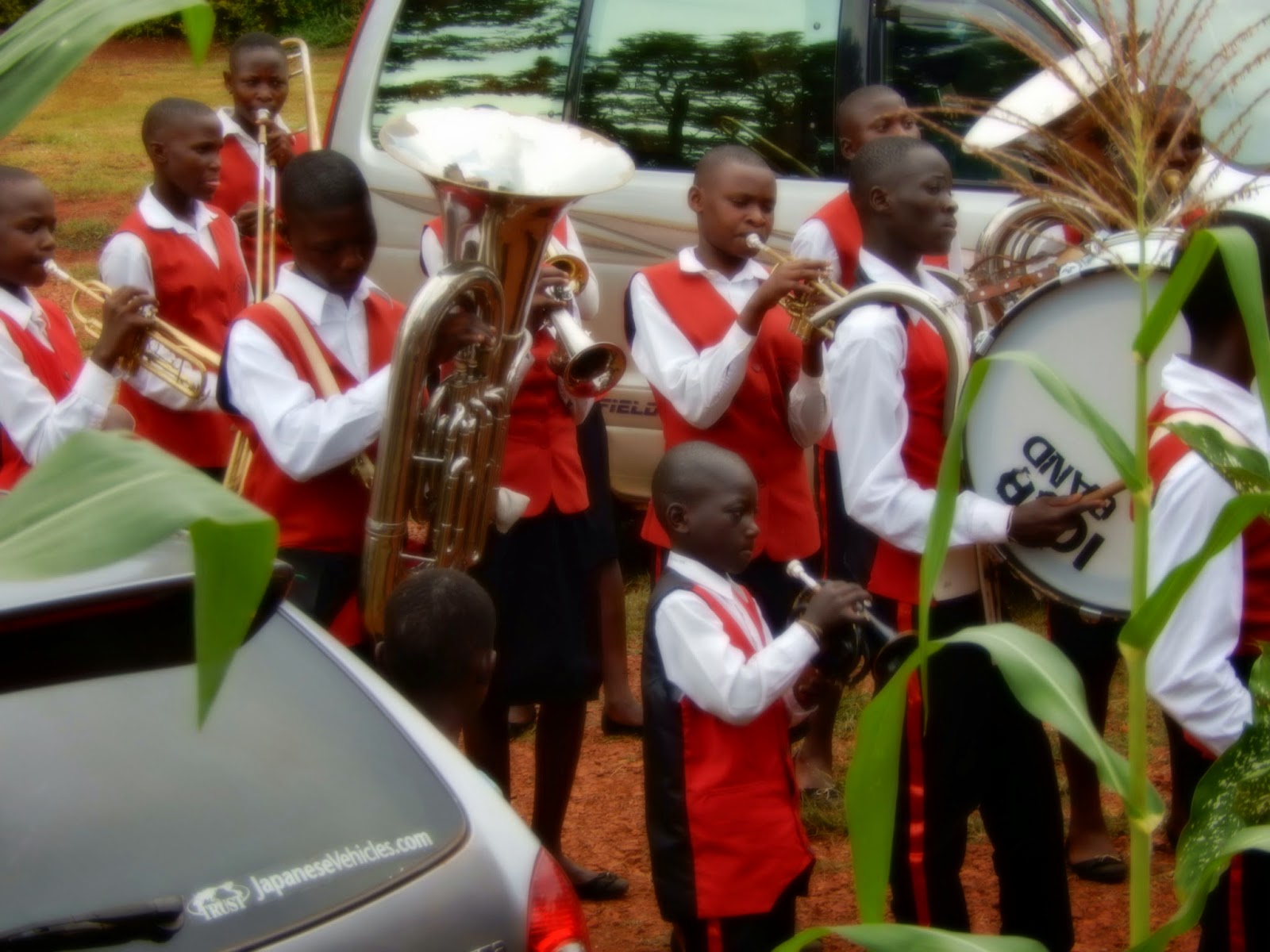It’s been a busier week. There is a YWAM ministry based out of Tijuana
called Homes of Hope. Their mission is
to build homes for the poor; efficiently using cost effective technology, and
locally available materials and labor.
One of the technologies they’ve been using is foam building blocks
encased in plaster and concrete. Last
year they shipped most of the equipment needed to make the foam blocks here,
and then built a home in Kakira (see last blog). Dr. Tim, the Hopeland director, has a vision
to build several homes in the area, including a long range vision of building
an entire community and sees Homes of Hope as a logical fit in that
vision. Last year HoH shipped molds,
other equipment, chemicals, and many other materials for producing the foam
blocks. They also sent a couple of guys
to set things up, and later a team to build the home. They’ve also purchased many tools and materials
here, and have trained a few young men in the process. Two guys from HoH have been here for the last
week to try to get it going again in anticipation of building more homes
beginning next month. There have been a
lot of problems with the equipment and very few blocks have been made so far,
but it seems most of the kinks have been worked out and there may be better
results moving forward. Since I’ll be
working with young men to develop vocational skills, I will be heavily involved
in this project.
 |
| setting up for block building |
 |
| celebrating.... |
Beth has had a busy week as well. One day she attended a meeting in town to
meet with several medical professionals from various organizations which have
different ministries in the area. She
met another nurse there who was able to spend a day with Beth giving a crash
course in HIV/AIDS, and its treatment methods here in Uganda. On Friday she was planning to go to visit
Musana and some of the people there, but first she and some of the other ladies
on base met with the Women with Hope group.
Turns out one of those women had died, so the whole group walked to her
home in a nearby village for the pre-funeral viewing. Beth and one of the other women here have
also begun an early morning exercise routine twice a week which they are hoping
others will join. She also was asked to
administer IV drugs to one of the vocational school girls who had been to a
clinic in town, and diagnosed with a serious infection for which she had been
given several meds. Beth and I have also
been asked to take on a kind of mentoring and parenting role to the vocational
school girls, which is something Beth had been feeling called to already. When we move into our ‘permanent’ quarters it
will be near where the vocational girls are housed.
On Saturday there was a big celebration on base. One of the staff members and her husband are
celebrating their 25th anniversary, and that’s a big deal here. It started with a special service at their
church, then a parade through town, followed by a procession to the base. There was a marching band, much pomp and
circumstance, speeches, dance performances, bubbles, gift giving, and a
feast. There were hundreds of people in
attendance, typical I understand, for such events.
This base is very peaceful and somewhat secluded, but we
have been warned last time here and this, that it’s not safe to be out after
dark. There have been rapes, murders,
and robberies are common. We’ve also
been warned to always lock our room because ‘even though YWAM people are mostly
honest, there are a lot of people who move around on and through the
base’. It’s okay though, because the
base is mostly fenced, and there are large gates at the two road accesses, one
of which is guarded most of the time. Of
course we noticed that one of those gates and much of the surrounding fence was
missing when we got here this time.
Also, when we returned to the base one evening at about nine, it took
several honks from the boda driver to wake up the guard to unlock the remaining
gate and let us in. I guess we could
have walked the hundred yards or so, to where the other gate had previously
been. Before it was stolen…










